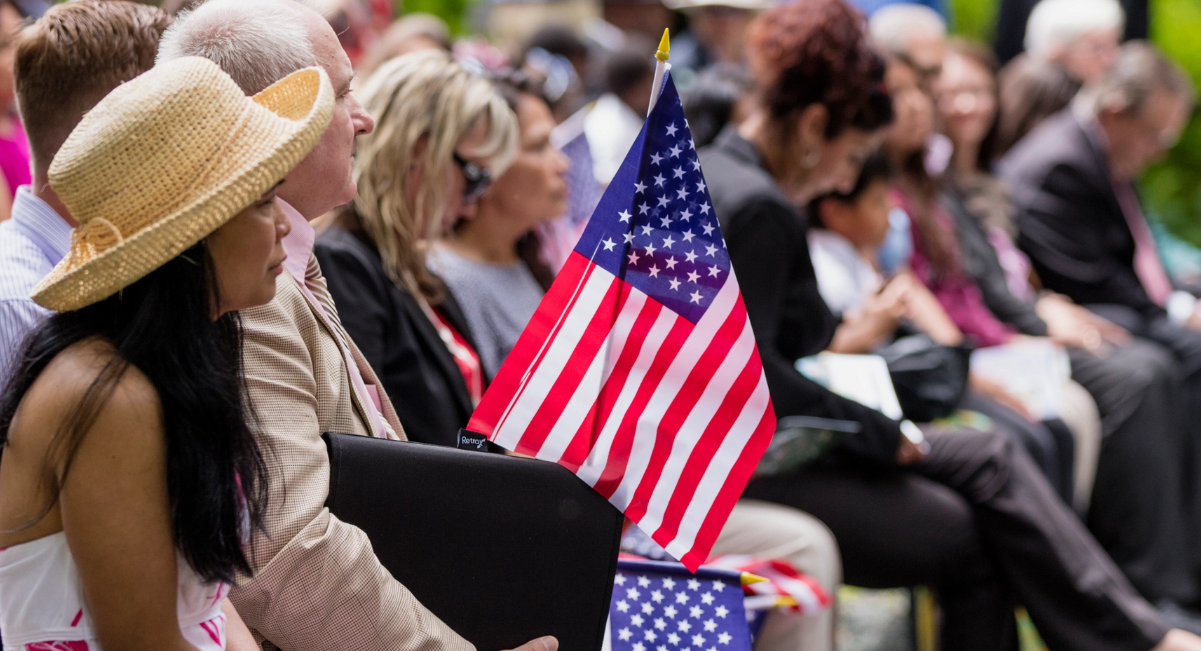As the elections near, the American public is perceived to be hopelessly divided. Race, along with wedge issues like immigration, affirmative action, and criminal justice are widely depicted as irreparable breaches in our body politic.
Yet compelling evidence points to a much more complex racial environment, one that challenges the existence of insurmountable division.
Democratic presidential nominee Kamala Harris was feted like a rock star as the vice president campaigned before thunderous crowds in Pennsylvania, Michigan, and Wisconsin during her battleground state tour, unveiling her running mate, Minnesota Gov. Tim Walz. Television screens captured the cheering, majority-white throngs of thousands enthusiastically supporting a Black female presidential candidate.
If the dominant narrative is to be believed, this shouldn’t be happening.
Every day, Blacks, Latinos, and other people of color engage with whites in meaningful dialogues and collaborations across racial lines, challenging the notion of intractable division. These often-overlooked interactions are the natural agents of change, forging connections based on shared values and goals and illustrating that solidarity can arise from understanding and respect.
This power of collaboration instills a sense of hope and optimism about the future.
Earlier this summer, the National Collaborative for Health Equity (NCHE) sponsored its second annual Heart of America poll. Unlike most public opinion polls which ask leading questions that result in respondents confirming the dominant narrative that America is too broken to be fixed, the NCHE poll uses a rigorous and unbiased methodology that doesn’t steer respondents toward negative or divisive answers.
In early June, BSG, a premier strategic market research firm, interviewed 1306 adults online to pose questions that delve at the soul of our nation. The margin of error at the 95% confidence level in the poll was ±2.71 percentage points. The complete poll results can be found HERE.
One encouraging finding is that Americans are more optimistic about the future than the gloom and doom rhetoric portrays. When asked, “How hopeful are you that Americans can work through their differences and find lasting common ground in the future,” 72% of whites were hopeful. That tracks with the 77% of Blacks, 74% of Hispanics, and 83% of people of color who responded likewise.
By 75% to 72%, men were more hopeful than women. By age, the least hopeful were 50 to 64-year-olds (66%), while 77% of 18 to 34-year-olds, 78% of 35 – 49-year-olds, and 74% of those over 65 were optimistic.
One of the most unexpected findings was the relatively high approval of reparations for families of former slaves. A slight majority (51%) of respondents agreed it was important that reparations payments be made to descendants of enslaved Americans, including 44% of Republicans and 46% of all whites. Young people, those 18 to 34, gave the most substantial support, with 63% saying it was necessary. However, approval declined with increasing ages: 34 –49 (58%), 50–64 (51%), and those over 65 only 27%.
In many communities, support for reparations grows because of heightened awareness and understanding of slavery’s contribution to the systemic inequities that continue to plague Black communities.
The passage of a resolution in Evanston, Illinois, efforts in California, New York, and other state and local jurisdictions, as well as efforts at the federal level with H.R. 40, demonstrate a greater willingness to address reparations for those who have been historically marginalized. Further, the increased visibility and discussion surrounding reparations has spurred dialogues about racial justice and equity.
In a blow to supporters of banning books about America’s history of discrimination and slavery, 79% percent of the public believes it is essential to educate children on race and racism in America. This includes 78% of whites, 70% of Republicans, and 79% of people of color. Interestingly, older Americans showed the most support, with 81% of those over 65 saying it is important, 81% of those 50-64, 79% of those 35-49, and 78% of those 18-34.
However, the poll’s results showed that America’s struggle to move beyond race as a factor in our daily lives does still exist.
Asked, “In what way do you believe your Race has been a barrier to your success,” 50% of Republicans said it reduced access to employment opportunities. In fact, more whites (39%) said their race was a barrier to employment than Blacks (36%). However, 50% of Hispanics and 48% of people of color overall said race was a barrier to employment opportunities. Of those over 65, only 35% said race had been a barrier, while 44% of those 50 to 64 said race was a barrier, 51% of those 35 to 49, and 40% of those 18 to 34.
We must recognize that addressing racial disparities in employment opportunities benefits individuals from underrepresented groups and the entire economy. Studies have shown that companies with diverse workforces are more innovative and have higher financial returns. By creating an inclusive workplace where individuals of all races are given equal opportunities, organizations can tap into a wider pool of talent and perspectives, increasing creativity and productivity.
The overall results of this poll, based on a nationally representative survey, contrast with dominant narratives and public perceptions that are shaped by polarizing media representations.
The heart of America is hopeful and committed to working together to bring about positive change.
Dr. Gail C. Christopher is the Executive Director of the National Collaborative for Health Equity, which promotes health equity by harnessing data, developing leaders, and catalyzing partnerships to create a more equitable and just society. She is also a Senior Scholar at the Center for Advancement of Well-Being at George Mason University and former Senior Advisor and Vice President of the W. K. Kellogg Foundation. She led the development and launch of Truth, Racial Healing & Transformation (TRHT) at the Kellogg Foundation. Her new book is RX-Racial Healing: A Guide to Embracing Our Humanity.













